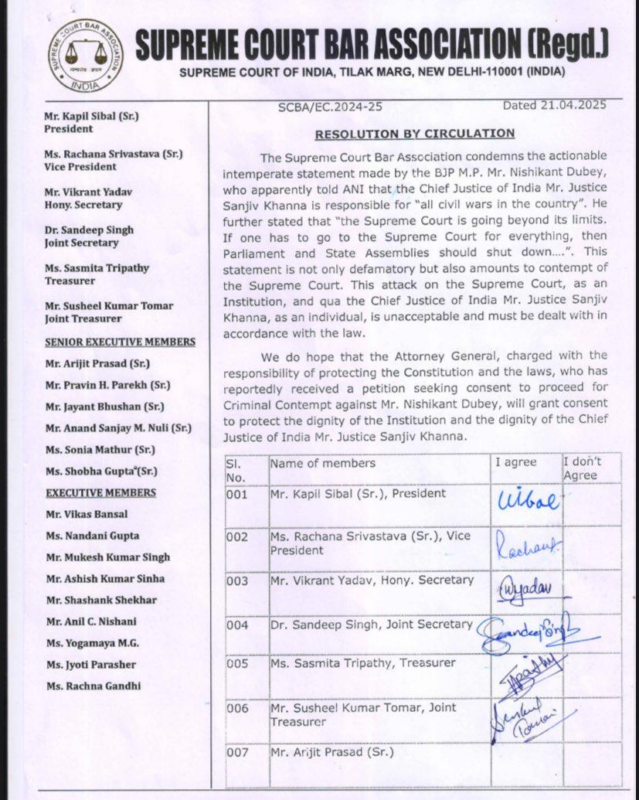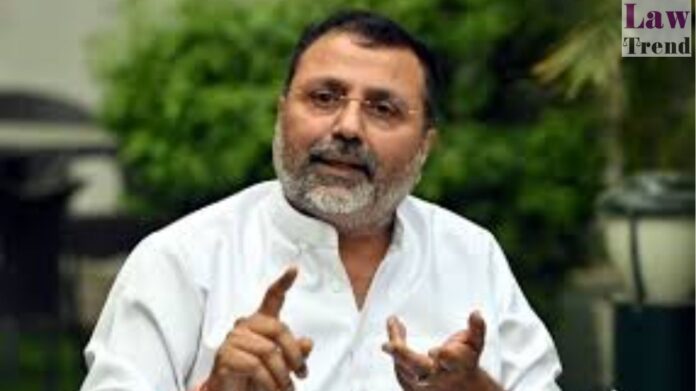The Supreme Court Bar Association has strongly condemned the controversial remarks made by BJP MP Nishikant Dubey, who accused Chief Justice of India Sanjiv Khanna of being responsible for “all civil wars in the country.” The Association expressed its hope that the Attorney General of India will grant consent to initiate contempt of court proceedings against Dubey for his statements.

Dubey’s remarks, which sparked widespread outrage, included claims that the Supreme Court was overstepping its constitutional role by effectively making laws, and that if the judiciary continued on this path, Parliament and State Assemblies should be shut down. He specifically targeted CJI Sanjiv Khanna, blaming him for inciting religious conflicts and civil unrest, particularly in the context of the Supreme Court’s intervention in the Waqf Amendment Act and other cases15.
The Supreme Court has agreed to hear a plea seeking contempt proceedings against Dubey. A bench comprising Justices B.R. Gavai and Augustine George Masih has scheduled the matter for hearing next week. The court noted that while permission from the Supreme Court is not required to file a contempt petition, obtaining the Attorney General’s consent is mandatory under the Contempt of Courts Act, 1971. Despite several lawyers approaching the Attorney General for consent, no response has been received yet.
Legal experts and members of the bar have condemned Dubey’s remarks as scandalous and damaging to the dignity and authority of the judiciary. Advocates have highlighted that such statements could incite public distrust and communal discord, thus undermining the independence of the judiciary and the constitutional framework. Letters have been sent to both the Attorney General and the Supreme Court urging swift action against Dubey for criminal contempt of court.
The BJP has distanced itself from Dubey’s comments, with party president J.P. Nadda clarifying that these were personal views and reaffirming the party’s respect for the judiciary. Nadda also instructed party leaders to refrain from making similar statements.
This development comes amid heightened tensions between political leaders and the judiciary, with accusations of judicial overreach and challenges to the impartiality of the courts becoming increasingly frequent. The Supreme Court’s decision to take up the contempt plea against Dubey signals the judiciary’s resolve to protect its independence and uphold the rule of law.
In summary, the Supreme Court Bar Association’s condemnation and the pending contempt proceedings against BJP MP Nishikant Dubey underscore the seriousness with which the judiciary views attacks on its integrity and authority, especially when such attacks come from elected representatives. The matter is now poised for judicial scrutiny in the coming week.




